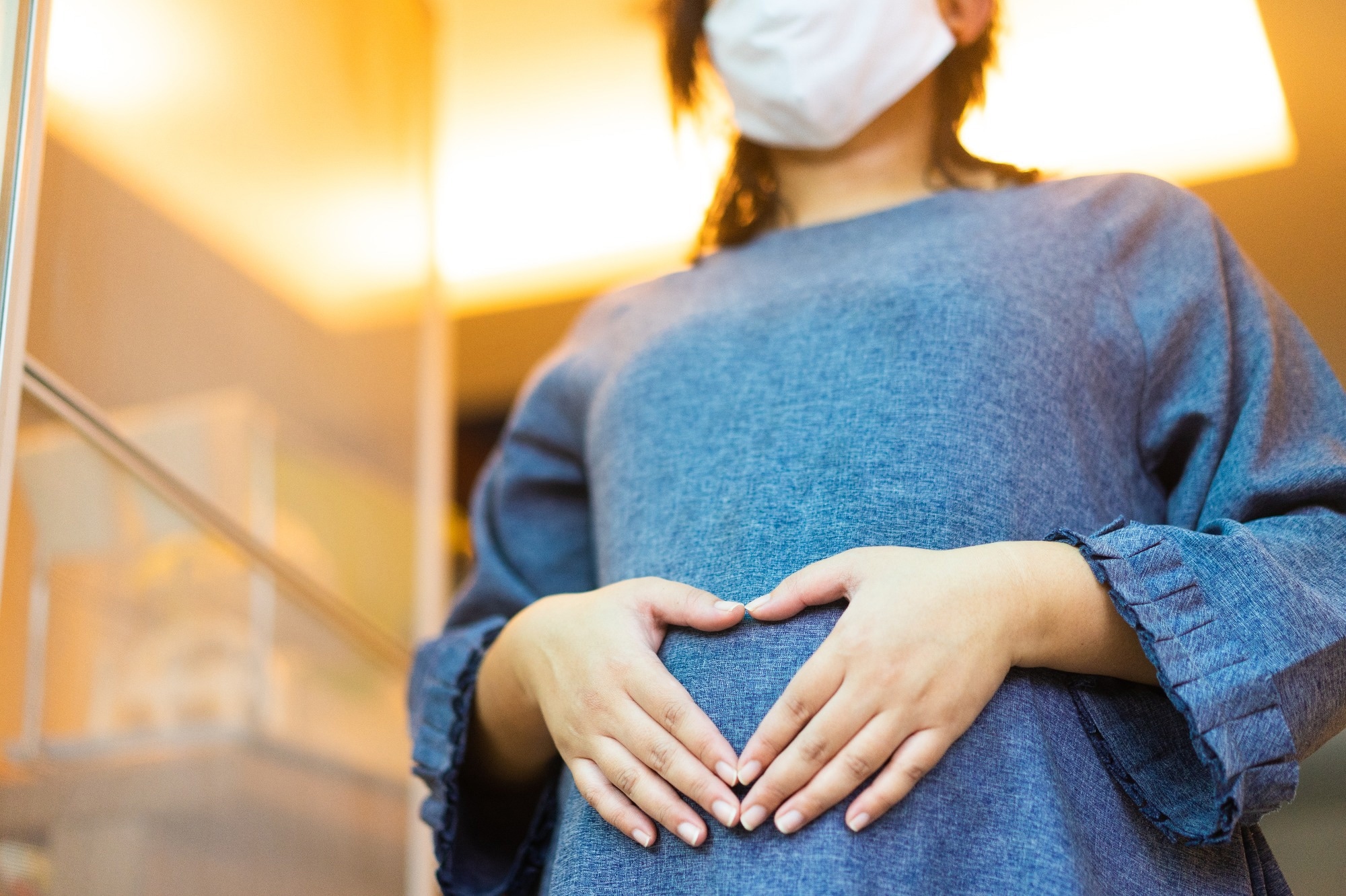The outbreak of the COVID-19 pandemic in the US has led to more than 97 million infections and over 1.06 million deaths. Approximately 182,000 cases have been reported among pregnant women, with 285 maternal deaths. Normal pregnancy is mainly associated with a 20 to 30% decrease in pulmonary functional residual capacity and a 20% increase in oxygen consumption. As a result, lower respiratory infections are poorly tolerated, especially during the third trimester.
Pregnant patients have been known to be at a higher risk of morbidity due to influenza infections. Recent studies indicate that pregnant patients are at a higher risk of severe to critical severe acute respiratory syndrome coronavirus 2 (SARS‑CoV‑2) infection compared to nonpregnant women of the same age. Moreover, this disparity was worsened during the surge of the Delta (B.1.617.2) variant. In addition, an increased risk of adverse neonatal and maternal outcomes is associated with severe COVID-19 during pregnancy. However, little is known about the impact of the timing of infection during pregnancy on such risks. Finally, vaccine acceptance among pregnant women is also lower than among other demographic groups.
A study in the American Journal of Obstetrics & Gynecology MFM journal aimed to analyze the effect of the trimester of SARS-CoV-2 infection on the progression of the disease in pregnant women.
 Study: Examining the impact of trimester of diagnosis on COVID-19 disease progression in pregnancy. Image Credit: MIA Studio / Shutterstock
Study: Examining the impact of trimester of diagnosis on COVID-19 disease progression in pregnancy. Image Credit: MIA Studio / Shutterstock
About the study
The study involved patients who tested SARS-CoV-2 positive during pregnancy between 18th March 2020 to 30th September 2021. Before 14th May 2020, COVID-19 diagnosis was performed based on symptoms or specific risk criteria, while after 14th May 2020, it was done using universal polymerase chain reaction (PCR) testing. Only the index infection was included in this study for patients with more than one SARS-CoV-2 infection during pregnancy.
The severity of the disease was determined as mild, moderate, asymptomatic, severe, or critical, as per the National Institutes of Health (NIH). The gestational week of diagnosis was determined and categorized by trimester. Evaluation for outpatients took place through telemedicine virtual visits, while for hospitalized patients, the primary indication of admission was determined as COVID-19−related illness, non-obstetrical, or obstetrical.
Delivery was considered for patients with severe or critical COVID-19 infection at or near term. The trimester of diagnosis determined the assessment of maximum disease severity, disease progression, and indication for hospitalization. A comparison of baseline and demographic, medical characteristics of patients infected in the first, second, or third trimester of pregnancy took place. In addition, information on neonatal, maternal, and obstetrical was obtained. Primary outcomes included preeclampsia with severe features, stillbirth, excess blood loss at delivery, abruption, and delivery in less than 37 weeks. Secondary outcomes included the need for neonatal respiratory support, umbilical blood pH less than 7, cesarean delivery, transfusion, abruption, stillbirth, gestational age less than 37 weeks at delivery, excess blood loss at delivery, and preeclampsia with severe features. Finally, a sub-group analysis was carried out to analyze disease severity and outcomes in patients infected before and during the surge of the Delta variant.
Study findings
The results indicated a total of 1,326 pregnant patients tested COVID-19 positive during the study period. Of them, 103 were first, 355 were second, and 868 were third-trimester patients. The first and second-trimester patients diagnosed with COVID-19 were reported to be older and have chronic hypertension or pregestational diabetes mellitus compared to those diagnosed in the third trimester.
Out of the 1,326 patients, 1,195 were reported to be asymptomatic or mild, while 45 out of 436 initially asymptomatic patients later developed symptoms. 4 first-trimester, 18 second, and 49 third-trimester patients developed moderate, severe, or critical COVID-19 disease. Pregnancy loss during SARS-CoV-2 infection was reported to be more likely among first-trimester patients. It was reported to occur at a mean gestational age of 7 weeks in the first and 17 weeks in the second. Stillbirth was recorded in 5 third-trimester patients and occurred at a mean gestational age of 33 weeks.
Composite obstetrical outcomes were reported in 23 first, 96 second, and 24 third-trimester patients. Overall, 83% of patients diagnosed with COVID-19 were reported not vaccinated even after the initiation of vaccination programs. Finally, a higher prevalence of severe or critical infection was observed during the period of the surge of the Delta variant. This was most prominent in patients diagnosed in the third trimester. Moreover, the disease progression was also observed to increase during the Delta period.
Therefore, the current study demonstrates that the frequency of COVID-19 disease progression is not impacted by the trimester of diagnosis. Approximately 10% of pregnant patients develop mild, moderate, or severe diseases. However, there has been an increase in the risk of disease severity during the Delta surge period. For this reason, COVID-19 vaccines and other preventive measures should be given before or as early during pregnancy as possible to prevent adverse outcomes.
Limitations
The study has certain limitations. A potential ascertainment bias is present in the study. Additionally, adverse pregnancy outcomes as well as critical or severe illness are under-assessed in the study. Third, it might not have been able to detect actual differences in the frequency of disease progression. Finally, patients infected with the Delta variant but did not deliver before 30th September 2021 were omitted from the study.